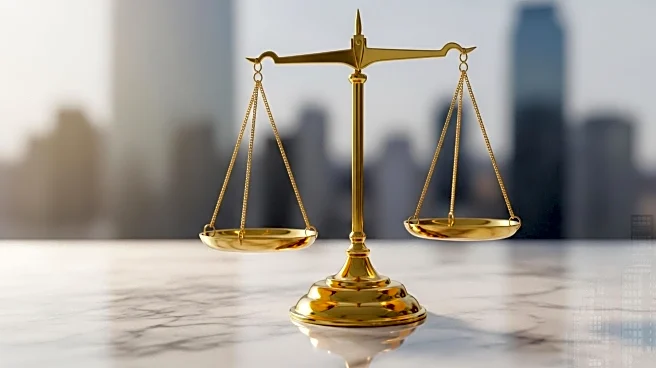What's Happening?
President Trump is attempting to remove Federal Reserve Governor Lisa Cook, a move that could have significant economic implications. This action is part of Trump's broader strategy to influence the Federal Reserve's monetary policy, particularly in relation to interest rates. Historical examples from countries like Turkey and Argentina suggest that such interventions can lead to increased inflation and interest rates. In Turkey, the dismissal of a central bank chief led to a devaluation of the currency and a spike in inflation. Similarly, in Argentina, attempts to remove a central bank president resulted in inflationary pressures. Trump's actions are seen as an effort to pressure the Federal Reserve to lower interest rates, despite the potential risks of undermining the institution's independence.
Why It's Important?
The independence of the Federal Reserve is crucial for maintaining economic stability and managing inflation expectations. If the Fed's autonomy is compromised, it could lead to a loss of credibility and investor confidence, resulting in higher interest rates and economic slowdown. This could make borrowing more expensive for consumers and businesses, affecting housing markets and investment in infrastructure. The potential removal of Lisa Cook and the pressure on Fed Chair Jerome Powell to cut rates could destabilize the U.S. economy, especially if inflationary pressures are not adequately managed. The situation underscores the delicate balance between political influence and economic policy, with significant implications for the U.S. financial system.
What's Next?
If President Trump succeeds in removing Lisa Cook, it could set a precedent for further political interference in the Federal Reserve. This may lead to increased scrutiny and potential legal challenges, as Cook's legal team has indicated plans to contest the removal. The markets are currently reacting cautiously, but any further developments could lead to increased volatility. The outcome of this situation will likely influence future appointments to the Federal Reserve and shape the direction of U.S. monetary policy. Stakeholders, including investors and policymakers, will be closely monitoring the situation for any signs of economic impact.
Beyond the Headlines
The potential removal of a Federal Reserve governor raises questions about the ethical and legal boundaries of presidential influence over independent institutions. It highlights the tension between political objectives and the need for stable economic governance. The long-term implications could include shifts in how central banks operate globally, as other countries observe the U.S. approach to central bank independence. This situation also reflects broader cultural and political dynamics, where economic policy becomes a tool for political agendas.









